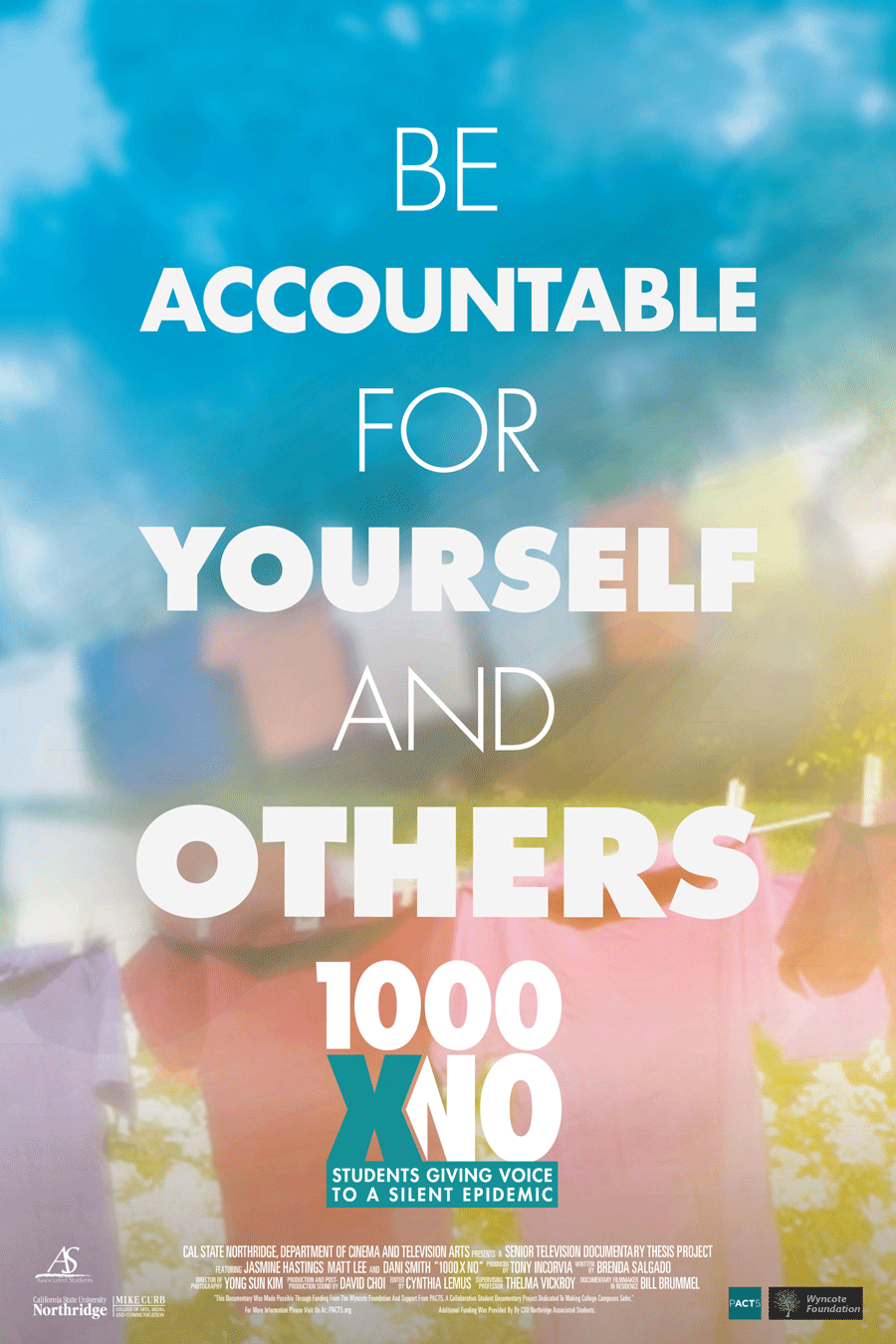Student Film Draws Attention to Issue of Sexual Assault on College Campuses
 Joining a national effort to prevent sexual assaults and rape on college campuses, a team of California State University, Northridge television students have developed a short film to draw attention to the issue.
Joining a national effort to prevent sexual assaults and rape on college campuses, a team of California State University, Northridge television students have developed a short film to draw attention to the issue.
The 10-minute documentary, “1000 Times No: Giving Voice to a Silent Epidemic,” will be screened beginning this fall at more than 200 colleges across the country as part of a yearlong effort by the Clery Center for Security on Campus, a national nonprofit organization working for safer campuses, to educate students about what they can do about sexual assaults on their campuses.
Cal State Northridge was one of five colleges nationwide to receive a grant from the Wyncote Foundation to create student-produced documentaries about sexual assault on college campuses. The five colleges—CSUN, Rowen University in New Jersey, Framingham State University in Massachusetts, Northern Illinois University and Western State Colorado University—formed PACT5, a collaborative student documentary project dedicated to making college campuses safer.
“1000 Times No: Giving Voice to a Silent Epidemic” follows a group of college students taking action against the prevalence of sexual assault on college campuses by educating and raising awareness.
“We’re hoping to use the power of media to educate college students about a very serious issue,” said CSUN cinema and television arts professor Thelma Vickroy. “As a member of PACT5, we believe the documentary form, when produced by students, can create powerful stories that can change potentially tragic behavior patterns. Students are the ones who can make a difference in the minds of other students.”
Vickroy pointed to some statistics: 95 percent of campus sexual assaults are unreported, 90 percent of women know the person who sexually assaulted or raped them and at least 50 percent of sexual assaults on campus are alcohol-related.
“And its during those first few weeks of school, when students, particularly freshmen, are adjusting to being on their own and exploring their new-found independence, that they are the most vulnerable,” she said. “We had to find a effective way to educate people.”

The crew of ‘1000 Times No,’ first row from left,Bill Brummell, Brenda Salgado, Cynthia Lemus, Yong Sun Kim; back row from left, Tony Incorvia, David Choi, Thelma Vickroy. Photo courtesy of Thelma Vickroy.
In fall 2012, Vickroy tapped a handful of students in her senior thesis capstone course to create the documentary. The handpicked students worked with colleagues in the departments of journalism, art and music to put the film together.
“We had so many ideas about how to tell this story, that at first it was hard to choose a topic,” said recent CSUN graduate Brenda Salgado, 23, of Santa Monica, who served as associate producer and writer of the film and was a member of the class. “We never wanted to just have somebody talking about their experience. We want something where people, especially freshmen, would pay attention, listen to what we had to say and maybe realize that there was something that they could do.”
Her classmate, Tony Incorvia, 25, of Yorba Linda, the film’s producer and also a recent CSUN graduate, agreed.
“The number of sexual assaults involving college students is shocking, and the highest number of incidents happen during the first six weeks of a student’s college career,” he said. “We wanted to do something that really fits the needs of a freshman orientation and leave something positive like this documentary behind to help better our alma mater.
“One of the things I am most proud of with ‘1000 Times No’ is that it raises awareness on sexual assault while also showing how you too can be involved with raising awareness,” Incorvia said. “I hope more people get informed and get involved with raising awareness.”
“1000 Times No: Giving Voice to a Silent Epidemic” can be viewed on the PACT5 website, www.pact5.org, which has all the documentaries produced by students from the five colleges. The site also makes available information and resources for faculty, students and parents concerning sexual assault on college campuses.

 experience
experience